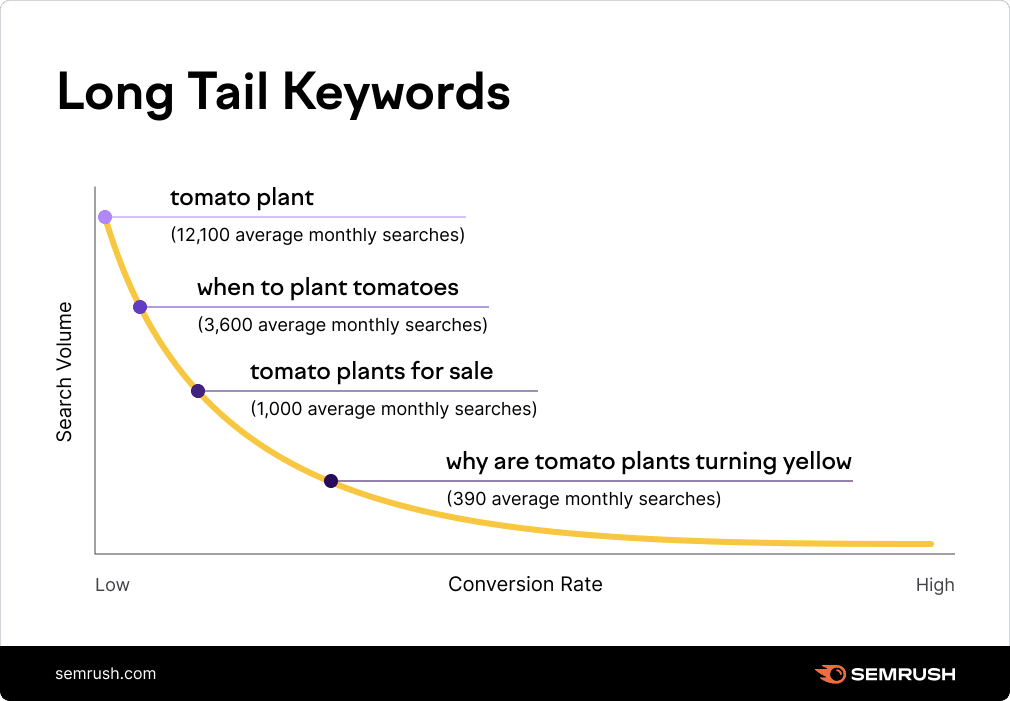Choosing the right keywords for your content marketing campaign is about more than simply figuring out what search terms people use and working them into your posts.
It’s also about knowing which keywords will drive the right traffic to your site and understanding how to use them wisely.
That’s where keyword optimization comes in. But what is solid keyword optimization all about, and how can you put together an optimization strategy that’s truly right for your brand?
We’ll go over everything you need to know to get it right.
In this blog, you’ll learn:
- What Is Keyword Optimization and Why Is It Important?
- How to Do Keyword Research for SEO
- The Different Types of Keyword Optimization
- Is It Possible to Over-Optimize Your Site?
- What Does the Future of Keyword Optimization Look Like?
- Conclusion
Download this post by entering your email below
What Is Keyword Optimization and Why Is It Important?
Keyword optimization is the practice of ensuring that the target keywords you’ve chosen for your campaign are genuinely effective at driving high-quality traffic to your website and boosting your SERP rankings. There are generally three stages in any keyword optimization effort:
- Research
- Analysis
- Selection
Keyword optimization helps search engine algorithms fully understand your site so that it’s visible and recommended to people who look for it. This form of optimization is also beneficial to you as a marketer for reasons like the following:
- Keyword optimization research can help you understand your target audience and zero in on their actual needs.
- Analyzing data related to keyword optimization helps marketers learn about the size of their potential market pool.
- Understanding what keywords to use (as well as when and how) helps you produce better, more compelling content.
How to Do Keyword Research for SEO
Ultimately, it won’t matter how great your content is if no one is searching for any of the keywords, phrases, or terms you use. Keyword research is the practice of discovering popular search terms to incorporate into your web content so that your target audience can find it on search engines. Here are some tips for getting it right.
Know the basics
There are three essential elements to consider when researching keywords that will eventually become the basis for high-ranking content:
- Relevance: Google ranks pages according to how well they meet a user’s specific needs. Keyword choices help determine relevance.
- Authority: Google also favors content from sources that clearly know the topic at hand. If you’re not an established authority, your content must be genuinely exceptional.
- Volume: Is the potential keyword searched often enough to generate real traffic? Is it also specific enough that you stand a good chance of achieving a high search ranking?
Use keyword optimization tools to expand on seed keywords
Seed keywords are starter terms that you can use to inform the rest of your keyword research session. For example, if you run a company that sells scented candles, some appropriate seed keywords might be “candles” and “home décor.”
By themselves, seed keywords are too broad to be worth targeting. However, you can plug those terms into a keyword research tool to zero in on suggestions that are worth targeting. Try these:
- Ahrefs Keyword Generator: Great for discovering effective long-tail keywords
- Google Keyword Planner: Ideal for choosing options to rank on Google, in particular
- SEMRush Keyword Research Toolkit: Effective at locating ideal keywords and identifying opportunities
For even more terrific options, check out our comprehensive list of top keyword explorer tools to try in 2023.
Think like your customers
User intent is one of the most important factors in a site’s ability to achieve top SERP positions.
So, put yourself in the shoes of your customers. What problems and concerns can your product, services, or content address for them? Consider how they might go about finding the answers and solutions they need through a search engine.
Be sure to consider the average buyer’s journey associated with your products and services. A good keyword research session should yield buyer keywords related to each phase—awareness, consideration, and decision.
Check out your competition
You also need to know who your competitors are and what keywords they use to drive traffic to their content. A quick Google search or Google scraping for a seed keyword will reveal your top competitors.
Plugging their URLs into an exploration tool like Ahrefs Site Explorer can give you additional insight into where their traffic comes from.
Research related search terms
Once you have a basic list of solid target keywords, fill it in by looking into related search terms. You can find fantastic suggestions highlighted on Google’s SERP for any search term.
You could also research additional terms related to those keywords for even more great ideas.
Understand the importance of long-tail keywords
Long-tail keywords are more specific, so they attract less traffic than broader search terms. However, they also have higher conversion rates, as they’re more likely to align with user intent.
For this reason, they’re the key to reaching consumers who are highly motivated to buy. They can also create a solid flow of traffic over time.

The Different Types of Keyword Optimization
A solid keyword optimization strategy is about more than just how you craft your content. It also includes contributing efforts that you put into your marketing campaign outside your site.
Here’s a rundown of what you need to know about each main optimization type and its related techniques.
On-page keyword optimization
On-page keyword optimization involves strategically incorporating keywords within individual web pages to enhance their effectiveness from both a marketing and SEO perspective. Key techniques include:
- Integrating keywords into on-page elements like titles, headings, and URLs.
- Ensuring that title tags and meta descriptions use keywords naturally.
- Using primary and secondary keywords throughout the content in a reader-friendly manner while maintaining an optimal keyword frequency.
- Enhancing content by including internal and external links with keyword-rich anchor text where appropriate.
- Optimizing images and graphics with keyword-relevant alt text.
- Organizing content with headings, subheadings, and visuals to facilitate easy readability.
On-page keyword optimization plays a vital role in increasing traffic, improving click-through rates, aligning with user intent, and guiding consumers throughout their buyer’s journey.
It’s important to note that effective on-page optimization demands time and a significant personal commitment.
To streamline this process, consider outsourcing content creation tasks to experienced professionals, like those available for hire on WriterAccess.
By doing so, you can scale your content production efforts while benefiting from the collective expertise of seasoned keyword optimization specialists.
Off-page keyword optimization
Off-page keyword optimization centers around refining the relevance and impact of your target keywords within external content, ultimately bolstering search engine rankings. Key techniques to master include:
- Strategically incorporating target keywords into anchor text when building backlinks from reputable websites.
- Ensuring that keywords are effectively integrated into your social media posts and content shared on various platforms.
- Cultivating a strong social media presence that aligns with your target keywords, driving traffic, fostering relationships, and boosting brand recognition.
- Encouraging customers to review your products and services, while responding professionally to all reviews, including negative ones.
- Implementing a range of content marketing initiatives, including email marketing, infographics, social media posts, ebooks, white papers, interactive quizzes, and more, all with a focus on optimizing keywords.
These efforts aim to enhance the relevance and prominence of your keywords in external content, further strengthening your website’s search engine rankings.
Collaborating with professional content creators and SEO experts remains invaluable in ensuring that your off-page content effectively integrates and optimizes keywords to maximize their impact on search rankings and online visibility.
Keyword optimization for local SEO
Don’t make the mistake of leaving local keyword optimization out of your strategy.
Approximately 46 percent of all searches come from consumers looking for local information, so it’s crucial to make sure your site is part of the mix. Important techniques to consider include the following:
- Claiming, verifying, updating, and maintaining your Google My Business profile
- Ensuring critical details about your business are consistent everywhere they appear—phone number, address, business hours, etc.
- Researching and including location-based keywords in your ongoing SEO strategy
- Creating location pages on your website
- Using social media to connect with potential local audiences
You’ll also want to ensure your website and content experiences are responsive and mobile-friendly because many local search users are looking for information on the go.
Is It Possible to Over-Optimize Your Site?
It is absolutely possible to overdo SEO, so it’s important to avoid over-optimization.
An over-optimized website is like a cup of coffee with too much sugar—something that could have been great but isn’t because there’s just too much of a good thing going on. Signs of an over-optimized website include:
- Keyword overuse (also known as keyword stuffing)
- Use of keywords simply for the sake of adding more keywords instead of adding value
- Poor use of links, title tags, and similar elements
- Long-form content that is fluffy and weak instead of informative and authoritative
What Does the Future of Keyword Optimization Look Like?
Keyword research, keyword optimization, and SEO aren’t jobs that you tackle only once in your journey toward success. The world of optimization is always changing, so they are ongoing tasks that should be revisited often.
Best practices and techniques constantly evolve to reflect emerging trends, algorithm updates, and other changes.
Some examples to keep an eye on in 2023 and beyond include the rising popularity of voice search and the growing use of natural language processing.
User experience will also continue to grow in importance, so smart content always caters to people first and search engines second.
Conclusion
A great keyword optimization approach is the X-factor that can set a site apart from the crowd, and it all starts with exceptional content.
Generate the type of content that really turns heads when you build the team of your dreams on WriterAccess.
Ready to take your experience to the next level?
Sign up for our free 14-day trial and see for yourself how we’re changing the game!







